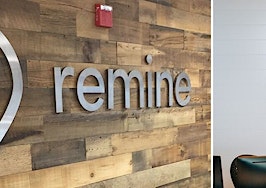Zillow is in the process of moving from an advertising mindset to a transactional mindset in an effort to better serve a changing real estate industry.
Speaking at Zillow’s invite-only Unlock event in Las Vegas Monday, Greg Schwartz, president of media and marketplaces at Zillow, highlighted the changing consumer and the Seattle-based real estate technology giant’s role in the real estate industry.
“Change in real estate is going to be driven by consumers,” Schwartz said, noting that today’s consumer carries more debt, identifies as more nomadic and expects an experience that anticipates their needs.
The average millennial homebuyer, Schwartz said, comes out of college with roughly $29,000 in debt.
“Do you think that impacts their choices?” Schwartz asked the crowd.
The average millennial also stays in his or her home for less than two years, according to Schwartz.
Schwartz said there are three critical changes the industry needs to make: systems have to anticipate customer needs every time and at scale, business incentives have to align between partners and customers and the industry needs to have the will to change and hold each other and their own teams accountable.
What won’t happen, according to Schwartz, is real estate moving to essentially an e-commerce concept, one that ignores the human element of the industry. It’s a common fear from many agents and brokers.
“Software is supposed to enable easier outcomes, but in no way shape or form does it drive a transaction that’s as fearful, as unique and as risky as real estate is,” Schwartz said.
Schwartz said Zillow is undertaking a new co-piloting initiative to give its partners more data and insights into the company’s consumers, to provide anticipatory cues. That will lead to delivering a more personalized process and moving beyond what Schwartz called, “slightly targeted spam to deliver intelligent service.”
For the company’s rental customers, Zillow is piloting a pay per lease initiative, although no further details were shared on the program.
For brokerage customers, that’s the company’s flex pricing initiative, Zillow’s effort to “move from a lead to a satisfied customer,” Schwartz said. The industry conversion average on leads is just 1 percent – which Schwartz said is 1 percent away from zero.
Flex pricing is a referral-based model where agents pay a portion of their commission on closed leads as opposed to an upfront, market-based price. The platform will replace the old Premier Agent model in its test markets – most recently Phoenix and Atlanta, two Zillow Offers markets.
The fee that agents pay is roughly 35 percent, the industry average, Schwartz said during the company’s second-quarter earnings call, but the platform is still in the testing phase so they haven’t settled on a number.







